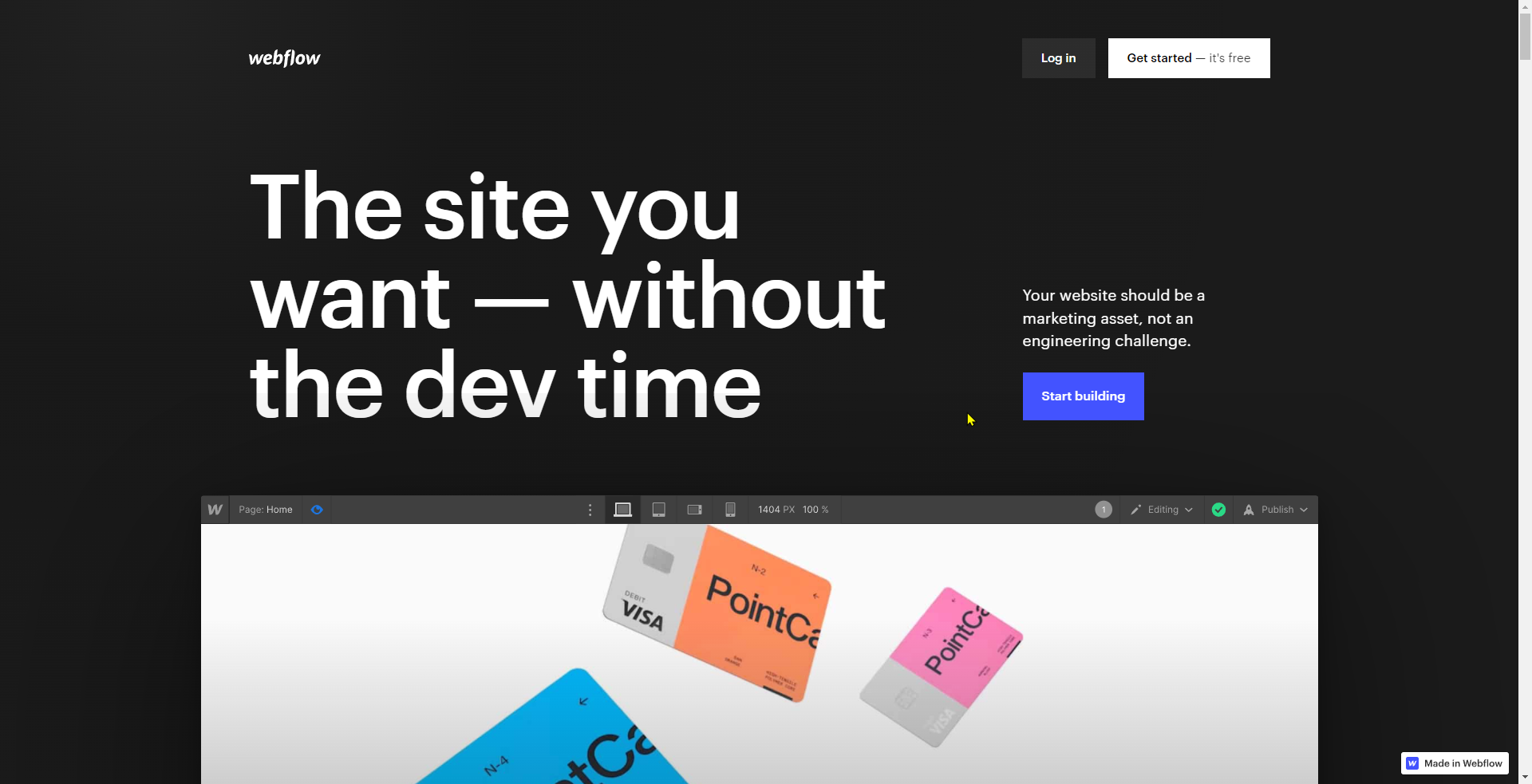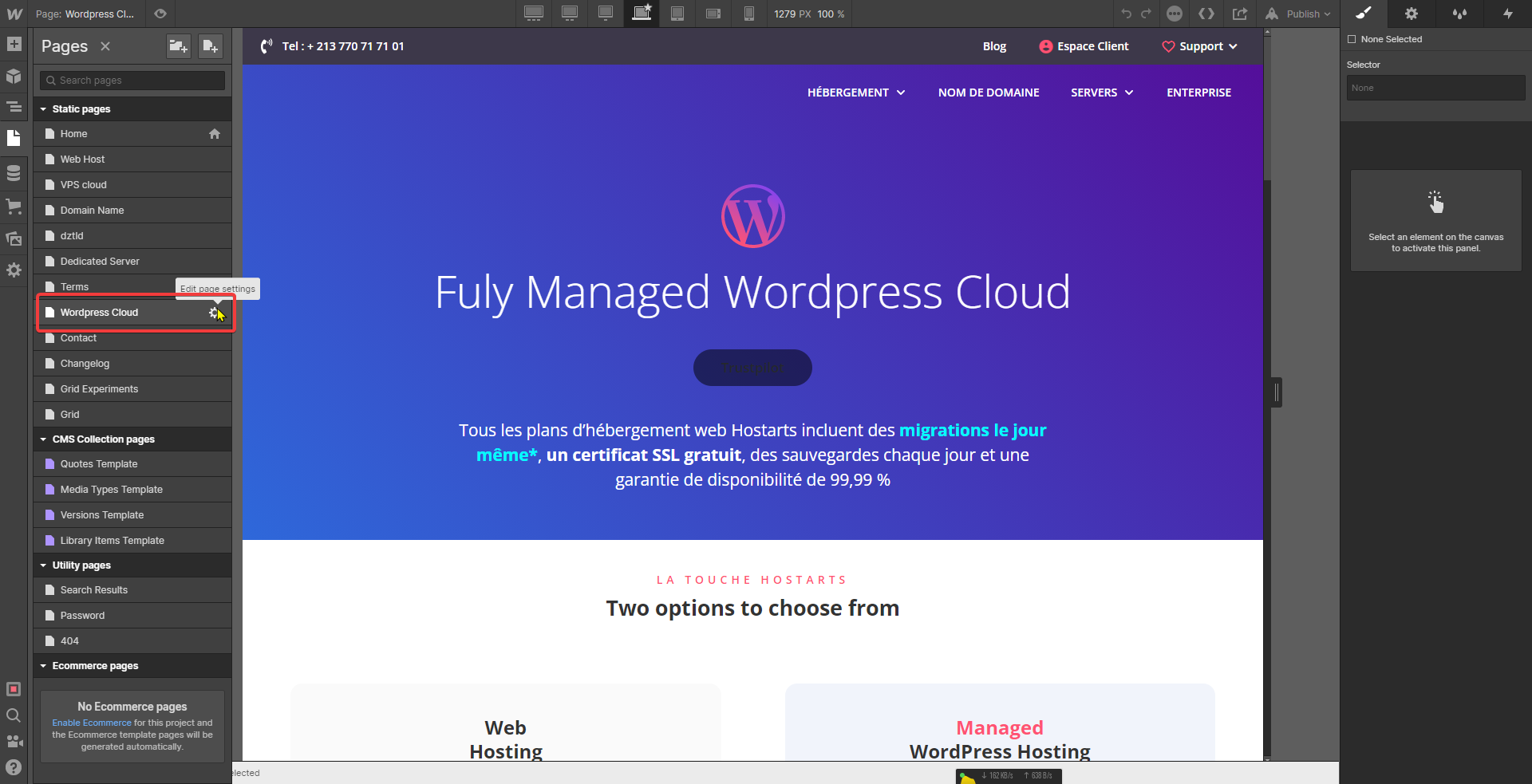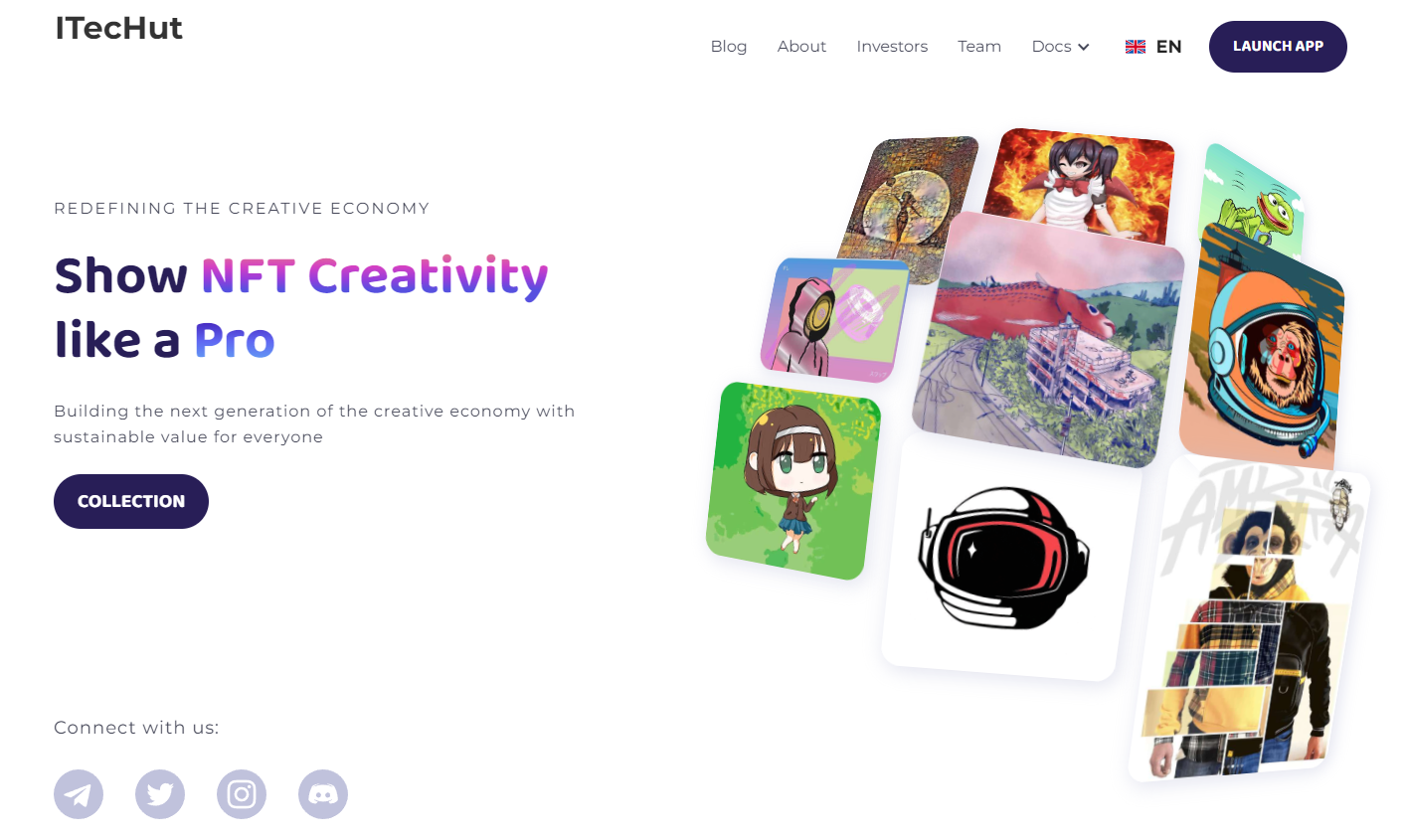Content management systems can be a pretty divisive subject matter amongst web designers and users alike. There are avid WordPress aficionados, Squarespace devotees, and Shopify lovers, just to name a few.
When it comes to website content management systems or CMS (the backend that lets you edit and update your website without needing to read or write code), we’ve never really been in love with the ones we’ve used in the past. They’ve always felt a bit clunky to use, buggy, slow, confusing, or too limiting in how much you can customize.
While choosing the right CMS for you will always come down to your website requirements, we’ve found a lot of features to love in Webflow, both in building websites and in managing website content.
If you’re a web designer, there is plenty of info on the web about why Webflow is an amazing tool for you. But, there’s much less about why Webflow is an amazing content management system for the content managers or end-users (i.e. people like me).
I’ve worked in marketing for several years, and have used a fair few content management systems, and I love how easy Webflow is for me, and for our clients. If you’re wondering why we’re fast becoming Webflow groupies, here’s why—
7 reasons to love Webflow, even if you’re not a web designer
1. It’s (virtually) impossible to break
I’ll never forget the day I called Kane from my old job and told him I had broken a WordPress website I was building from a template. How did I break it? I have no freaking clue. Did I have a backup? Nope (that would have been smart). You might think this is simply due to my stupidity (perhaps), but a quick Google search will prove I’m not alone. You’d be surprised at how often people accidentally change a field and end up ugly crying at their office desk trying to revive their website.
I’d prefer not to repeat this emotional time, so I want it to be really hard to accidentally delete things and, if I somehow do, I want it to be easy to restore them again. Webflow makes it pretty hard to break your website. Even so, if you accidentally delete something critical, you can easily access old autosaved versions of your site and restore it again. No one will be the wiser.
2. It’s low maintenance
I don’t know about you, but I am all about low fuss and ease. I don’t want to have to worry about upgrading to the latest version or upgrading plugins because let’s are honest, who has time for that? I also don’t want to suffer through the pain of losing what I’m working on because I forgot to hit publish or save button.
Webflow autosaves your work, so even if you accidentally quit out of your browser and forget to hit publish, your changes will still be there waiting for you. It seems pretty simple, but is not a feature in all content management systems and is a total lifesaver.
If you want to use the Webflow CMS, you need to host your website with Webflow. This could be a drawback for some, but I like this because I don’t have to manage my website hosting separately from my website. If you’ve used Squarespace, it’s a similar setup— website CMS and hosting all rolled into one.
The difference in hosting costs with Webflow might be slightly higher than other cheap as chips hosting out there, but to me the cost is negligible, considering it also comes with an SSL certificate and distributes your files across the globe in a content distribution network (CDN) powered by Fastly and Amazon Cloudfront.
If this sounds confusing, just know that SSL means your site is more secure, and CDN makes it load faster for all your visitors, no matter where they are geographically located. SSL certificates and CDNs are great for optimizing your website for search engines, enhancing your visitor’s onsite experience, and improving your results page rankings.
3. It has great community support, articles & updates
Webflow is a young company but already has an amazing community behind it. I’ve emailed support a few times, and have had fast and friendly customer service every single time. There’s also a great community of designers and developers who work with the platform every day who you can hire to lend a hand if necessary.
If you have a desire to learn more about building or updating websites in Webflow yourself, they also have a really comprehensive support center called Webflow University to teach you how.
I also love that Webflow listens to their community to regularly implement new features and capabilities on their platform. It shows their commitment to their users and willingness to keep upgrading and investing in their product.
4. It makes writing and editing really easy
The majority of the time I spend on our website is editing copy, adding or changing images, adding new case studies, and creating new blog posts, so easy editing is really important to me.
The tough thing about writing copy for your website is that even though it might sound flippin’ brilliant in your Word Doc when it’s placed on the website, it’s usually way too long or doesn’t read the way you hoped. Webflow lets you edit text on the page, so you can see how it fits within the website design before you hit publish.
Another nice feature is that Webflow’s CMS allows you to create collection items and pages that can be referenced throughout your whole website and edited from a single, central location. For example, if you make a typo in a testimonial, and it’s used 5 times across your website, you only have to update it in one spot, not 5. Items or pages in a collection use the same design, so they act as templates, making it easy to maintain consistency throughout your website. We use collections for our blog posts, testimonials, FAQs, portfolios, and more.
5. It’s user friendly
While some CMSs have been built with the end-user in mind, others seem geared towards web developers, making them mighty confusing to use for non-code-speaking folk.
Webflow does a pretty great job at appealing to both parties. Plus, they’ve spent a bit of time making sure their CMS is aesthetically pleasing and easy to navigate which makes for a great user experience.
Sometimes you need to add a little bit of HTML code to your website, mostly to track visitors to your website or verify site ownership. I don’t want to have to sift through all the HTML files on my website to add some code, and I like that Webflow makes it really easy to add code to your header code.
While it’s a visual design tool and is easy to use, Webflow isn’t quite the same as some ‘drag and drop’ editors you may have used in the past. But, that’s nothing a few tutorials can’t help with. Or if you don’t have time, it’s not hard to get support from an experienced Webflow expert if you needed to make a major change.
6. It’s SEO friendly
Webflow ticks all the right boxes for me when it comes to being SEO-friendly. It gives me access to all that good SEO stuff—clean code, fast loading times, semantic URL structures and editable alt tags, heading tags, meta descriptions & title tags. It can also auto-generate your sitemaps and allows you to do easy 301 redirects if you decide to change a URL slug or delete a page.
7. It plays nicely with other software
Webflow integrates with email management systems such as Mailchimp, ActiveCampaign, and AutoPilot, eCommerce platforms such as Shopify, Gumroad, and Paypal, and social media platforms, such as Pinterest, Instagram, and Facebook. It also works with Zapier, so it can automate a number of processes to and from your website.
Is Webflow for you?
If you like your website content management system easy to use and low maintenance, then I’d suggest checking it out. If you’re curious, we’d be happy to show you some of the websites we’ve built in Webflow.
If you don’t love the Webflow CMS after using it, you can always export the HTML code for your website design and get a professional to hook it up to another CMS, so you don’t have to redesign your website.
Of course, we always recommend choosing the CMS that’s the right fit for you, your needs, and your business. If you’re like us and a lot of our customers, and not overly crazy about the content management system you’re using, wondering if there’s something better out there, it’s definitely worth checking out Webflow.
Have you used Webflow? Or are you curious about whether it’s the right fit for you? Let me know in the comments.




